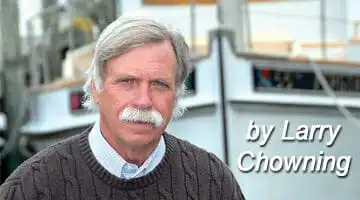The sport of baseball most likely originated from the 18th century game known as rounders, a children’s game played in England and brought to New England by the early colonists.
 By 1845 there was a New York City baseball club that spearheaded the beginning of the modern day professional baseball leagues. It is believed baseball became popular on the Middle Peninsula and Northern Neck after the Civil War. A theory is that either southern Confederate prisoners in Union prison camps picked up on the game from watching guards play or they were encouraged to play on the prison grounds.
By 1845 there was a New York City baseball club that spearheaded the beginning of the modern day professional baseball leagues. It is believed baseball became popular on the Middle Peninsula and Northern Neck after the Civil War. A theory is that either southern Confederate prisoners in Union prison camps picked up on the game from watching guards play or they were encouraged to play on the prison grounds.
Whatever the origin, baseball soon became a Southern pastime after the war and grew locally to legendary status. On Saturday, July 1, the Rev. Edward Harrow alluded to the progression of the sport in Middlesex at a dedication of the Town of Urbanna’s new Bristow Community Pavilion at Taber Park.
The pavilion is dedicated to the late Charles and Betty Page Bristow, lifelong residents of Middlesex County. Harrow and Bristow grew up together. At the dedication Harrow spoke of the days when Charles and he had to borrow a mule and a plow in the 1940s to shape the baseball field at Saluda High School. “A far cry from the lighted sports fields at the modern Syd Thrift Athletic Complex and the Middlesex Sports Complex today,” he said.
Charles’ father, Jock “Bobo” Bristow, was a player/coach for a local semi-pro baseball team and he encouraged them to keep the field groomed for play. “We called Jock, ‘Bobo,’ because he could throw the ball as hard as Louis Norman ‘Bobo’ Newsom, who played for the Washington Senators,” said Harrow. Bobo Newsom had a 20-year professional baseball career in the 1930s and 1940s.
Theodore Williams
A local baseball legend most likely unknown to most is the name Theodore Williams. Williams played for the “Middlesex Tidewater Cubs,” a semi-pro all-Black baseball team, and was a whale of a pitcher. The Cubs’ home field was at Cooks Corner in Middlesex.
The most famous baseball figure in Middlesex County history was the late Sydnor W. “Syd” Thrift Jr. of Locust Hill. Thrift made baseball his life and went on to become one of the greatest baseball minds in the history of the game. He became general manager of the Pittsburgh Pirates and a top executive with the Baltimore Orioles. He encouraged Williams to sign a professional baseball contract but Theodore opted not to.
During the Korean War from 1950 to 1953, Thrift became the manager/player of the Ft. Eustis Wheels in Newport News. The war increased the need for recruitment and major league players were being drafted and sent to military stations around the country.
Vernon “Deacon” Law, a talented 21-year-old pitcher for the Pittsburgh Pirates, and Joe Lonnett, a catcher with the Philadelphia Phillies organization, who later became an outstanding major league Wheels player, were on the team. There was another major league player on the Wheels by the name of William Howard “Willie” Mays Jr., who was also the only Black player on the team.
Segregation resulted in the legendary Willie Mays striking out to Theodore Williams at the Cooks Corner ballpark. Williams was pitching for the Cubs when he faced off against Mays, registered the strikeout and made Middlesex County sports history.
Thrift was responsible for scheduling games. Before Willie arrived, the Wheels had been playing most of the all-white semi-pro teams in the region. After Willie arrived, when Thrift called about scheduling games, managers of all-white teams refused to play with a Black on the team. So Thrift got in touch with teams in the local Negro league who were delighted to play the Wheels.
With all that talent, the Wheels beat the Cubs, 6-5, by only one run and Theodore Williams struck out the New York Giants’ — and later San Francisco Giants’ — Willie Mays. Syd Thrift would reminisce about that day and would often tell the story.
It Happened Here in Rivah country!


